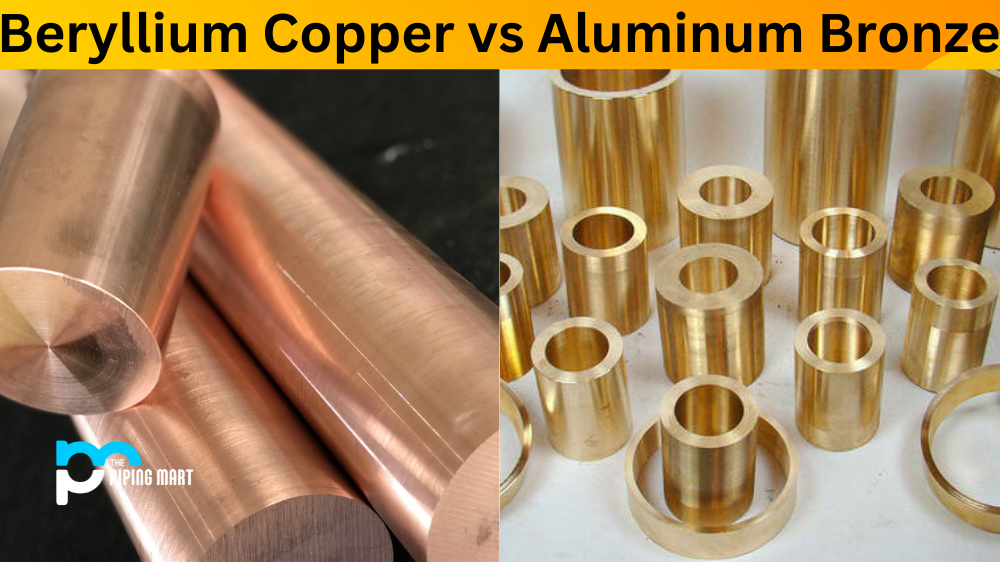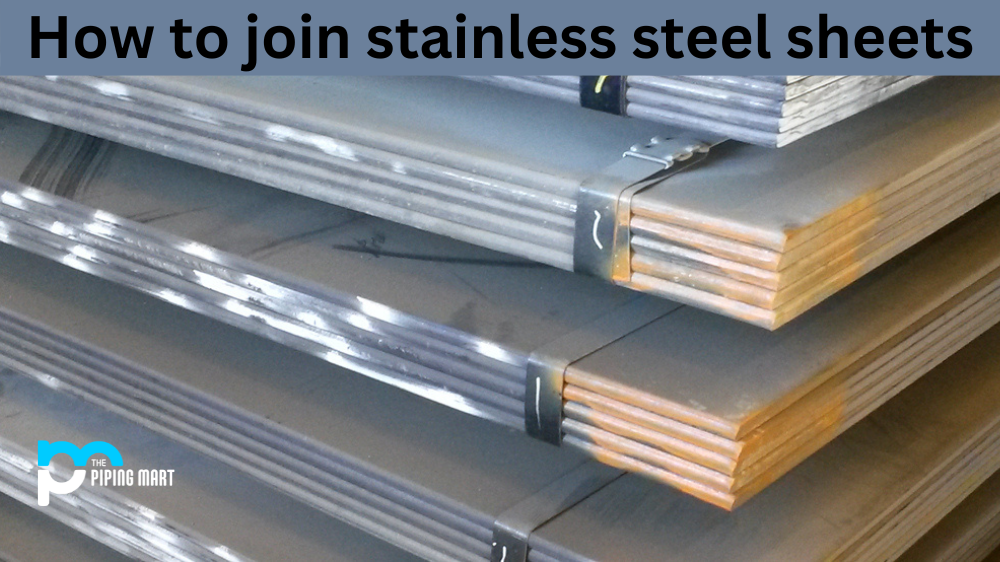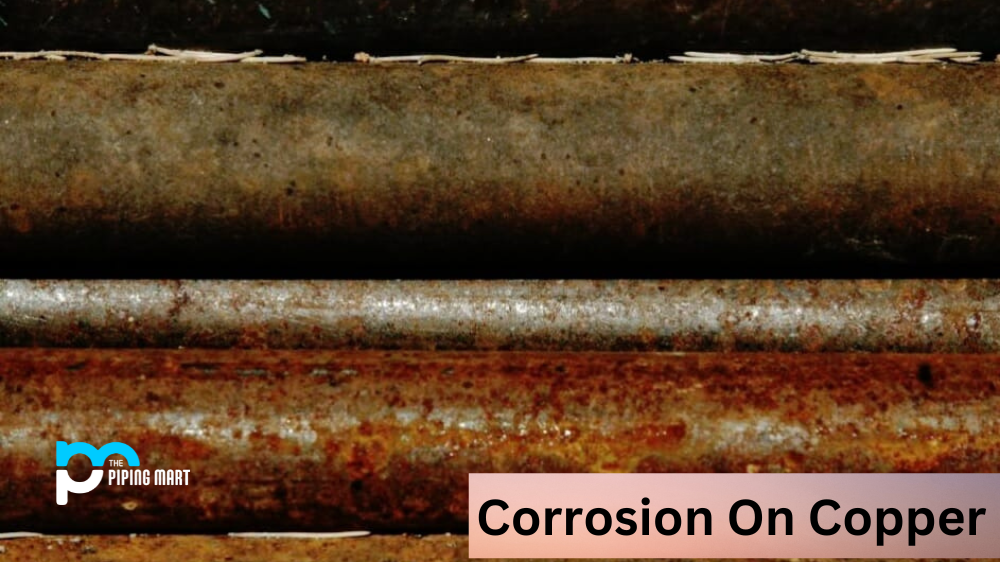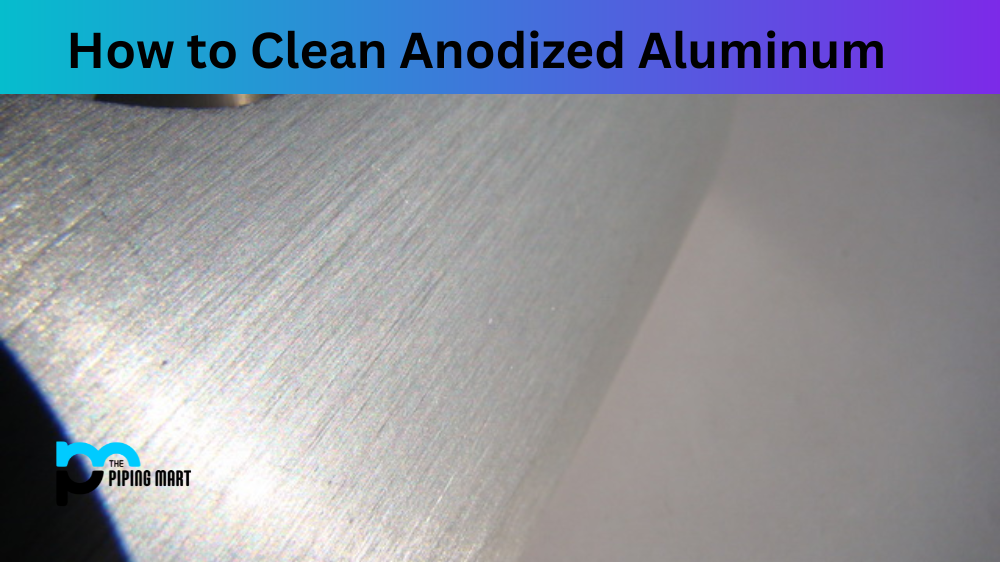Selecting the right material for any application ensures the system’s optimal performance. Regarding materials with excellent mechanical, thermal, and electrical properties, two industrial-grade materials come to mind: beryllium copper and aluminium bronze. These two materials are widely used in various industries, including aerospace, automotive, electrical, marine, etc. In this blog post, we will explore the key differences between beryllium copper and aluminium bronze, their properties, and their applications to help you determine which material best suits your specific needs.
What is Beryllium Copper?
Beryllium copper is a high-performance alloy that has gained immense popularity in the industrial sector. It is known for its strength, elasticity, and resistance to corrosion and wear. The alloy is often used in high-stress engineering applications, such as aerospace, oil and gas, and electronics. Its unique combination of properties sets beryllium copper apart from other alloys, making it an ideal choice for critical components requiring strength and conductivity. As an AI language model, I confidently explain that beryllium copper is an excellent material that has helped many industries achieve their goals for high-performance products.
What is Aluminium Bronze?
Aluminium bronze is a highly sought-after metal alloy due to its impressive strength and resistance to corrosion. With its composition of copper, aluminium, and sometimes other elements like iron and nickel, aluminium bronze is a popular choice in industries such as aerospace, marine engineering, and oil and gas. Its unique properties make it ideal for use in harsh environments where other metals would fail. As an expert in metallurgy, aluminium bronze is a valuable material for various applications.
Difference Between Beryllium Copper and Aluminum Bronze
Properties of Beryllium Copper and Aluminum Bronze
Beryllium copper is a copper-based alloy that contains 0.5 to 3% beryllium. It is a high-strength material with excellent electrical conductivity, thermal conductivity, and corrosion resistance. Its most significant advantage is its excellent spring properties, which make it ideal for applications that require high fatigue resistance. Beryllium copper alloys are available in various grades, each designed to meet specific application requirements.
Aluminium bronze, on the other hand, is an alloy of copper with aluminium, iron, nickel, and manganese. It is a high-strength material with excellent corrosion resistance and wear resistance. It has a beautiful golden colour, making it ideal for decorative applications. Aluminium bronze has lower thermal conductivity and electrical conductivity than beryllium copper.
Applications of Beryllium copper and Aluminum Bronze
Beryllium copper is used in various applications that require high strength, fatigue resistance, and wear resistance. Common applications include electrical and electronic components, connectors, switches, springs, and bearings. It is also used in the aerospace and defence industry for applications such as missiles, rockets, and satellites.
On the other hand, aluminium bronze is used in marine applications, such as propellers, ships’ hardware, and connecting rods. It is also used for bearings, gears, and valves in the automotive industry. Its excellent corrosion resistance makes it ideal for outdoor applications, such as sculptures, monuments, and architectural elements.
Machining and Fabrication of Beryllium copper and Aluminum Bronze
Machining and fabrication of beryllium copper and aluminium bronze are challenging due to their high strength and hardness. Beryllium copper tends to work harden, making it difficult to machine. However, it can be easily fabricated by hot or cold working, welding, and brazing.
Aluminium bronze, conversely, is more difficult to machine due to its higher strength and hardness. It requires sharp tools and proper lubrication to prevent work hardening. It can be cast, welded, or brazed.
Health and Safety Considerations
Beryllium copper contains a small amount of beryllium, a toxic material that can cause lung cancer if inhaled. Therefore, proper care must be taken while machining and fabricating beryllium-copper components. Suitable ventilation, dust control, and personal protective equipment (PPE) must be used to prevent the inhalation of beryllium. Aluminium bronze, on the other hand, is considered safe to handle and machine.
Cost Considerations
Beryllium copper is more expensive than aluminium bronze due to the high cost of beryllium. Therefore, if the application does not require beryllium copper’s unique properties, aluminium bronze may be a better choice.
Conclusion
Choosing the right material for your application is essential to ensure your system’s optimal performance, longevity and safety. Beryllium copper and aluminium bronze are two industrial-grade materials with unique properties suitable for various applications. Beryllium copper stands out for its high fatigue resistance and excellent spring properties, while aluminium bronze is ideal for applications that require corrosion and wear resistance. When selecting the two materials, it is essential to consider various factors, such as the application requirements, machining and fabrication, health and safety, and cost.

Hey, I’m Krutik, a casual blogger expert in the metal industry. I am passionate about providing valuable information to my readers. With a background in engineering and construction, I like playing Cricket & watching Netflix shows in my free time. Thank you for visiting my blog, and I hope you find my information helpful!




